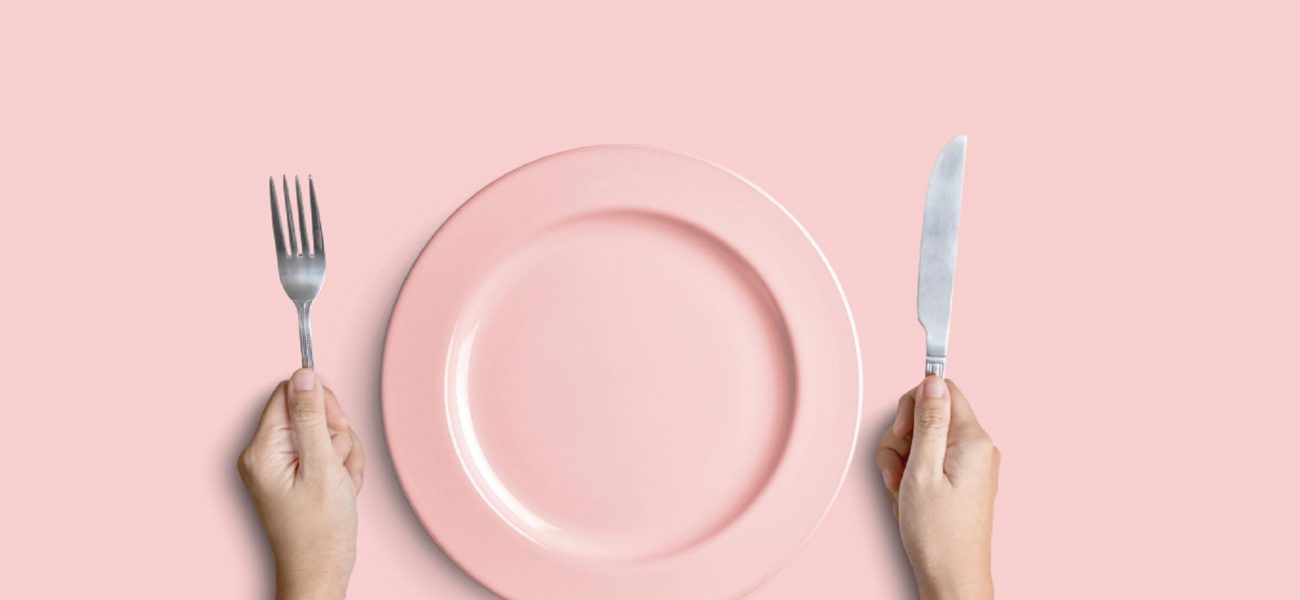While most nutritionists will say that we should consume everything in moderation, there are some exceptions. “I never like to rule out any foods or food groups unless absolutely necessary (for example, in those with food allergies) and I am a firm believer in the 80:20 rule – eating well 80 per cent of the time and having the occasional, well-deserved treat,” explains Keri Filtness, nutrition adviser at Nature’s Best (naturesbest.co.uk). However, there are some foods that the experts will never have in their store cupboards. Whether that’s because they offer no nutritional benefit or that there’s simply a healthier alternative. So, we asked top nutritionists for the foods they would always avoid, and what they’d have instead. You might be surprised by their answers!
Low-fat fruit yoghurt
“I would never eat a low-fat fruit yoghurt,” says functional medicine certified health coach and founder of Peppermint Wellness (peppermintwellness.co.uk) Suzy Glaskie. “Despite their healthy-sounding labels, they’re packed full of sugar. You might as well have ice cream for breakfast. They’re also full of additives that our bodies don’t know what to do with. Instead, I’d have full-fat, organic Greek yoghurt with some blueberries or raspberries mixed in, a dash of cinnamon and some walnuts crumbled on top.”
Refined and processed carbohydrates
“Carbohydrates are an important nutrient in our diet. Yet most of us are eating too many refined carbohydrates found in foods such as pastry, white bread, pasta, rice, some breakfast cereals and the flour used in many cakes,” says nutritionist Gemma Shorter (nourishgem.co.uk). “These carbs have had most of their fibre content removed, resulting in many of us not eating enough of this nutrient. This lack of fibre raises blood glucose levels quickly and increases the risk of heart disease. I swap refined carbs for wholegrain versions, and use Lo-Dough (lodough.co) as a substitute for pastry or pizza dough, as it’s low in refined carbohydrates and high in fibre.”
Regular Coca-Cola
“I avoid regular Coca-Cola. It contains 35g of sugar per can, which is around nine teaspoons,” explains Marianna Ragoussi, nutritionist for Spoon Guru (spoon.guru). “Drinking one can mean that you’ve passed the daily recommended sugar intake for adults, which is 30g. So, when I’m craving a refreshing drink, I’d either go for a Diet Coke, which has 0g of sugar, or freshly made lemonade which is high in vitamin C.”
Vegetable oil spreads
“I don’t eat processed vegetable oil spreads. These tend to be high in omega 6 fatty acids which, if not balanced with other omegas, like omega 3, can be problematic. It may even cause an increase in the production of pro-inflammatory compounds in the body,” says Keri. “I prefer to use a variety of different oils in my cooking. Olive oil for cooking, extra virgin olive oil or avocado oil for salad dressing, and a little bit of good quality butter on occasion. Moderation is key. I use homemade nut butters or a mashed avocado rather than an oil-based spread on toast.”
Coconut alternatives
“I would never eat certain foods that claim to be healthier or better for you but actually aren’t,” says Louise Payne, nutritionist for Spoon Guru. “Yoghurts that are made with a milk alternative, such as coconut milk, aren’t as healthy as they make out. Unless you have a milk allergy or you are lactose intolerant. Certain brands of coconut yoghurt contain more than 20g saturated fat which is more than your recommended daily allowance. Coconut oil is also reported to be healthier than other cooking oils but, again, despite its high smoke point, it still has the highest amount of saturated fat out of all the cooking oils. Swap to rapeseed oil instead for a healthier alternative.”
Microwavable noodles
“One food I never eat is a pot noodle soup,” reveals Marianna. “I do agree that it is extremely convenient. All you need to do is pour some hot water and wait for a couple of minutes before it’s ready, but it doesn’t provide the quality nutrients you can find in freshly made noodle soup. I also believe it won’t taste anywhere near as good. I love to cook noodle dishes, especially to include a variety of fresh vegetables and the lean protein of my choice, like chicken breast slices. Some dishes can be prepared in under 20 minutes, however, a good noodle soup can take a few hours in order to really enhance the flavours.”
Milk chocolate
“The lower the cocoa percentage, the higher the sugar content and the more addictive the chocolate,” says Louise. “I eat at least 75 percent dark chocolate. With dark chocolate, you get a sweet enough taste without feeling the need or desire to eat the whole bar!”
Children’s cereals
“Children’s cereals can pack in a lot of sugar yet manufacturers can call them healthy because they’re fortified,” says nutritionist and fitness expert Louise Mercieca (louisemercieca.co.uk). “Adults and children alike are lacking in vitamins and minerals but we can get them without sugar-filled, fortified cereals. Instead, I use plain oats for porridge but jazzed up. I often mix together mashed banana, cacao powder, honey, oats and nut milk, creating chocolate banana porridge with no sugar yet a lot of nutrients.”
Highly processed meats
“Processed meats, including ham, bacon, hotdogs and beef jerky, have chemicals, such as nitrates, added to help preserve them,” says Gemma. “In 2015, the World Health Organisation confirmed that eating 50g of processed meat a day (two slices of bacon) increases the risk of developing colorectal cancer. Processed meat was classified as a group one carcinogenic, which means that there is sufficient evidence that it causes cancer – the nitrites are thought to generate certain compounds in the gut which cause cancer. I replace processed meats with other proteins such as fish, tofu, cheese, beans, eggs or vegetarian sausages.”
White bread and pasta
“Unless I’m eating out and white pasta or bread is all that’s on offer, I won’t eat it and I don’t buy it myself,” says Emma Brown, nutritionist at calorie-counting app Nutracheck (nutracheck.co.uk). “These foods have been stripped of much of the goodness in the grains, so I just don’t see the point. They also give a short burst of energy but can leave me feeling sluggish. I’ll always choose a whole grain or wholemeal version for all-important fibre, extra B vitamins and protein. It keeps me feeling much fuller, too.”
Ready meals or pre-made sauces
“I would never have a ready meal or pre-prepared sauce,” says nutritionist Fleur Borrelli, who launched of The In-Sync Diet with actress Glynis Barber. “Personally, I tend to prepare everything from scratch. I would make homemade tomato sauce or ketchup. I enjoy that interaction with food. And I always use olive oil or butter on my food to make it tastier. I try to include fresh herbs on a daily basis.”
Value nut butter
“I avoid buying or using value or the generally cheaper nut butters. These tend to contain palm oil, sugar and salt, which takes away from some of the goodness of nuts,” says Emma. “Instead, I opt for 100 percent nut butters to ensure I’m getting all the protein and good fats from the nuts. Without the unwanted extras. I use a supermarket own-brand version that’s really reasonable at just £1.50 a jar.”






















